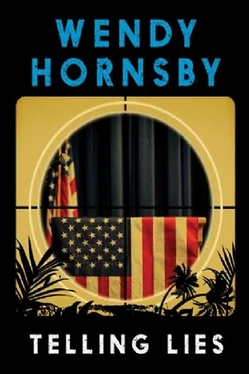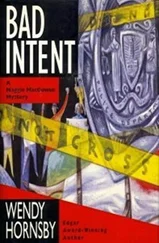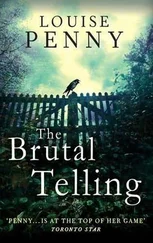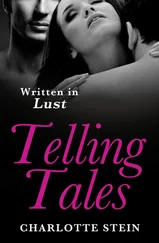“You were around, you remember all that.”
“I wasn’t there, I was in a convent, for chrissake.”
“Any of them, huh?” He got up and started stacking dishes in a distracted way. “Them covers a lot of territory, unless she meant them as opposed to us. Think about 1969 and everything we were involved with: we made a trip to Hanoi, we organized a big peace demonstration in Berkeley, the death of Tom Potts, our indictment, then Marc. If them is anyone who opposed us, wanted to arrest us, was offended by us, you could have a list half as thick as a phone book.”
“And us?”
“The core group. The seven of us indicted for conspiracy, inciting to riot, manslaughter, and whatever else was trumped up. You could throw in our families-at least some of them-attorneys, fellow-travelers of one stripe or another. That would net you the other half of the phone book.”
“The seven of you were close, like a family?”
He laughed. “More like the Hatfields and the McCoys. We feuded all the time. About the moral extent of the use of violence, and political bedfellows, over whose turn it was to make the coffee, and whether Camus or de Beauvoir was more correct, what to watch on TV, and over rumors that one or more of us was on the FBI payroll. It was always a fractious group.”
“But you stayed together,” I said.
“We came together for a moment, for one cause that intersected all our ideologies on the same axis: a tiny point in time and space. By early 1970, we had split up.”
“Just like that, you split up?” I helped him carry the dishes to the sink and scrape the remains of eggs into a plastic bowl. “I don’t hear the angst I expected.”
“People change, evolve, have different destinies to pursue. Some of our group split off into other movements, became more radical, found Jesus, disappeared like Aleda. Whatever.”
“That’s it?” I asked. “You evolved away from the Movement? I’m looking for the source of a festering wound that may have led to murder. What you offer me is Jesus?”
Jaime chuckled softly. “Maybe Jesus has better answers than I do.”
“Try again.”
“You want old wounds?”
“Yes. As you said, open, bleeding wounds.”
“Where to start? We all took some pretty good licks,” he said. “Going to Hanoi was a big mistake. We got a glimpse of the real world over there, and came home damned scared, with a message to share that no one seemed to want to hear. We were tailed, bugged, harassed by the Feds. From the pulpit, Billy Graham called us Satan’s children. There were death threats. Your parents’ house was firebombed. We organized a demonstration at Berkeley that got out of hand, and a perfectly innocent kid died as a result. We were indicted on charges that ranged from conspiracy all the way to murder. We did some jail time – jail time being the one essential rite of passage for an organizer. Police and National Guardsmen thumped us now and then. Is that enough?”
“What about the other side, them?”
“That’s vast territory. Far and away the biggest hurt, as you know, was the death of Tom Potts. He was an only child, a grad student on a hardship fellowship. That’s a lot of hope dashed.”
He became very thoughtful. “The rest seems petty in comparison. At least one of us was an FBI informant; there was some foundation to the rumors. I have my suspicions, but I don’t know for a certainty who it was. If that came out even now, it could be damned embarrassing.”
He poured himself the last of the coffee in the pot, tasted it, then dumped it into the sink. The bitter residue showed on his face.
“We weren’t caught for everything we did that was illegal, or immoral,” he said. “We slept with each other, did some drugs together, plotted mischief together, went to court ensemble. How serious it might be to have some of that old shit made public depends, I suppose, on one’s career or position. Or, maybe, family.”
“Starting at the beginning,” I said, “I guess the big question is, whose idea was it to set the bomb that killed Tom Potts?”
“Oh, God,” he moaned. He spent a lot of time putting dish soap in the sink, running water, getting out a fresh towel. He avoided looking at me.
“Are we picking at the old wounds yet?” I asked.
He looked at me sideways, almost smiling. “You were always the most persistent kid.”
“Who made the bomb?”
“Hell, I don’t know. Anyone can make a bomb.”
“I can’t,” I said, feeling some heat.
“If you have the right cookbook you can.” Jaime picked up the dish towel and wiped his hands as he headed out of the room. “Hold on a minute. Maybe I have something.”
The collie waited until Jaime was out of sight, then came over and laid his head against my leg. I took the bowl of table scraps off the counter and sat down on the floor beside the dog. He was a clever creature; he refused the bits of chorizo I offered him, but eagerly ate clumps of egg and a few pieces of tortilla. I didn’t know if doggie snacking was allowable, but it gave us both something to do while we waited for Jaime to come back. Besides, Lupe’s feelings might be hurt if she saw how much of her breakfast had been rejected.
For me, there was some uncomfortable deja vu involved in being left behind to wait for Jaime. Time does distort reality, but it seems to me that, as a kid, I was always being left behind by big people dashing off to do endlessly interesting and mysterious things. Em and Marc, because they were so much older than I was, and thus bigger, more competent, more independent, used to infuriate me. No matter how much I grew and matured, they always had a head start. Whenever I hit a milestone, they had already been there and were long gone. Especially Emily, primarily because we were the same sex. For instance, by the time I finally entered school, Emily already had a bra. When I got my first bra, Em had thrown hers away and was taking the Pill. I was doomed to always miss the good stuff.
I was certainly left out in 1969. I was shielded, given an expurgated version of everything because of my tender age. It made me mad. Even twenty-two years later, no one had told me the whole truth. Maybe that’s why I was always so nosy-I just wanted to know what was going on. I still do.
The dog was a big help merely by being warm and available. He sighed contentedly and was just closing his eyes with his head in my lap when Jaime came back into the kitchen.
Jaime held a faded color snapshot in front of me. “You can have this.”
The picture wasn’t very clear. I took it from him and looked at it closely. It was the core group, plus Marc.
The group in the snapshot was casually posed, squeezed in together to fit into the frame. Marc looked sharp in a fresh Marine uniform. He was sandwiched between Emily in a wilted cotton sundress and Aleda in shorts and Madras shirt. Clustered around them were six others.
“Where was this?” I asked.
“Honolulu Airport. We were on our way to Hanoi. Marc had some R and R coming between tours of duty. We arranged to meet.”
“You kept the picture?”
“So I’m sentimental. It’s a sin I’ve paid for dearly,” he said. “I loved Marc like a brother.”
I didn’t want to cry again; I didn’t want the tears welling in Jaime’s eyes to fall. I got up for a drink of water.
“You okay?” he asked.
“Yes. These people have changed so much.”
“You’ve kept in touch?”
“No. I’ve seen almost all of them during the last twenty-four hours,” I said. “All except Arthur Dodds and Celeste Baldwin.”
“Arthur Fulham Dodds,” he said, running his thumbnail under the earnest young face in the picture. “He blew himself up making bombs in a basement in New York City about a year after this was taken.”
Читать дальше












